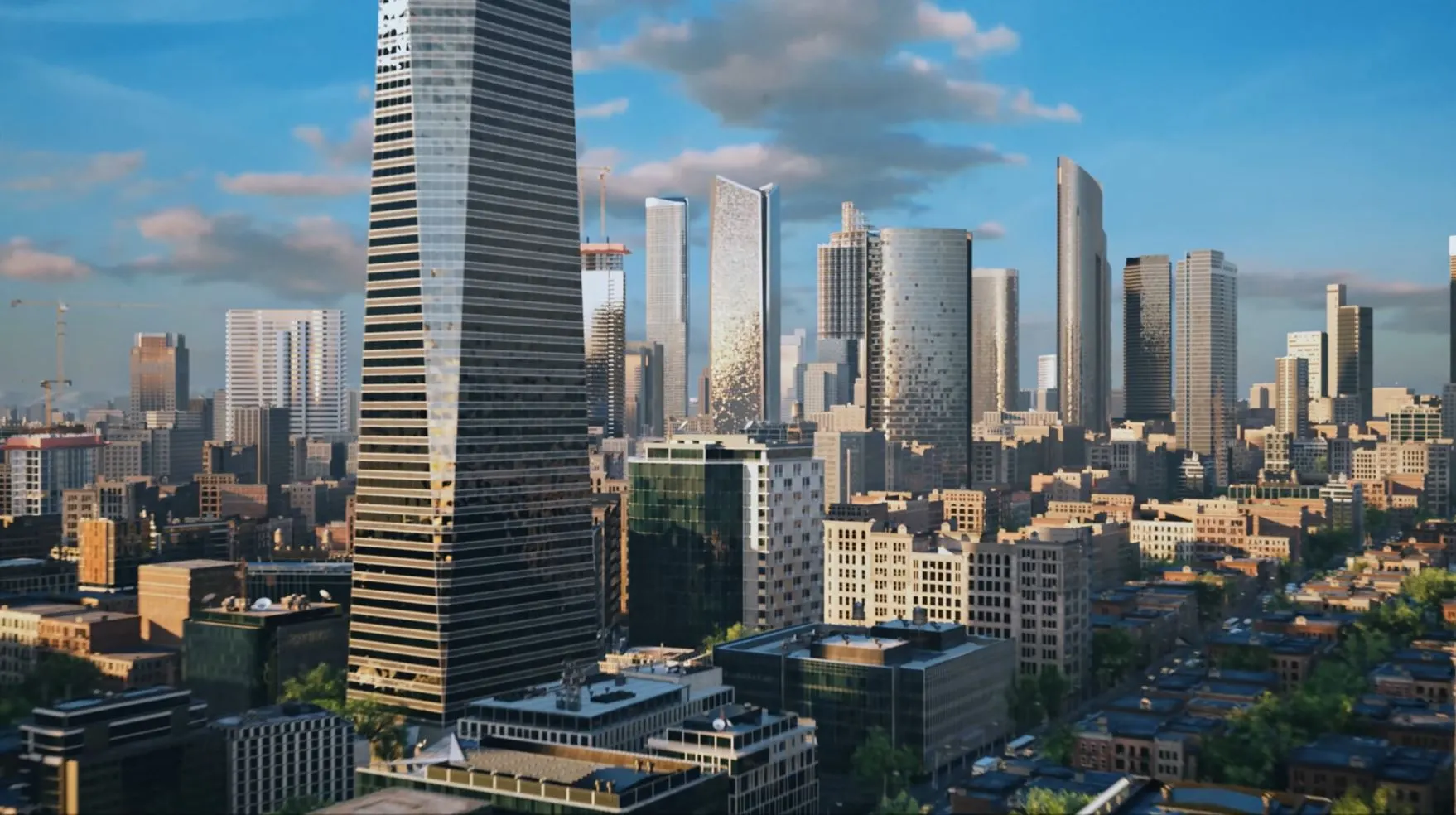Over the past few weeks, gamers and city-building enthusiasts have eagerly awaited updates on Cities: Skylines 2, and the latest reveals do not disappoint. Paradox Interactive has unveiled some impressive additions to the game, particularly in the realm of city services. While the new features showcase advancements, they also shed light on some harsh realities that mirror our own world.
The development video and accompanying devblog shed light on the enhancements made to city services in comparison to the original Cities: Skylines. One notable improvement is the ability to upgrade existing schools and hospitals instead of constructing new ones when the population grows.
This upgrade system enables a wider circle of influence, accommodating larger populations and offering relief to players who have previously resorted to spamming elementary schools in their sprawling neighborhoods, all in an attempt to improve citizen satisfaction.
Moreover, the video introduces entirely new features, such as the telecommunications service, comprising cell towers and server farms. In an era where internet and phone services have become integral to modern cities, the inclusion of an extensive and well-managed telecom service is a logical and welcome addition. Residents and businesses alike will reap the benefits of reliable connectivity and efficient communication networks.
Confronting Reality: Welfare Offices and Prison Labor
Yet, as Cities: Skylines 2 aims for greater realism, the game delves into darker aspects of urban life. The devblog mentions the introduction of a welfare office, acknowledging that “Life might still take a turn for the worse for some people.” This acknowledgement is a subtle reminder that within the picturesque god’s-eye view of our cities, there are likely countless individuals struggling, mirroring the hardships faced in the real world.
The devblog provides further insight into the welfare office mechanics, adopting a more game-oriented perspective. It explains that the office assists individuals facing challenges and boosts their well-being if their happiness falls below half. However, this game-like description fails to capture the grim reality of individuals caught in a system that perpetuates wealth inequality and leaves many struggling to afford basic necessities like food and housing.
Furthermore, the devblog unveils a detail on crime and punishment within the game: “Arrested criminals are put in jail, and some criminals are sentenced to serve prison time.”
It continues by mentioning that prisoners are either sent to local prisons or transported to outside connections if local prisons are unavailable. Disturbingly, the blog reveals that prisons also serve as production facilities, generating resources used by manufacturing companies in the city.
This depiction of prison labor in Cities: Skylines 2 reflects a somber reality. In the real world, incarcerated workers, as noted by the ACLU, often face exploitation and abuse, being stripped of even the most basic labor protections. They receive minimal pay while benefiting the billionaire owners of the for-profit industries they are leased to, exacerbating the cycle of inequality.
Discover the Celestial Challenges of Astral Ascent: “Are you ready to navigate the vibrant fantasy world of The Garden and defeat the 12 zodiac-themed bosses? Dive into our comprehensive Astral Ascent game review to explore the stunning visuals, responsive controls, and engaging gameplay that set this roguelite action platformer apart.”
Designing a Realistic City Builder
While the inclusion of such sobering features may be unsettling, they contribute to the overall aim of creating a realistic city-building experience in Cities: Skylines 2. This game allows players to confront the challenges faced by real cities and offers an opportunity to improve upon the flaws of reality.
Perhaps within this virtual world, players can design cities so efficiently and equitably that the need for a prison system, which exploits inmates for cheap labor, becomes obsolete. It presents an opportunity to imagine a future where low wages and welfare dependency are replaced by fair employment practices and social support systems that uplift all citizens.
In Cities: Skylines 2, players have the chance to grapple with these thought-provoking issues and shape cities that transcend the limitations of our existing systems. As the game’s release approaches, anticipation grows for the experiences that await, where virtual city builders can explore the boundaries of realism and design the cities they envision in their dreams.
Uncover the Charm of Retro Gaming Reimagined: Are you a fan of retro-inspired games with a modern twist? Don’t miss our in-depth analysis of “Castillo: The Nine Circles”, where old-school pixel art meets innovative gameplay in this indie gem.
